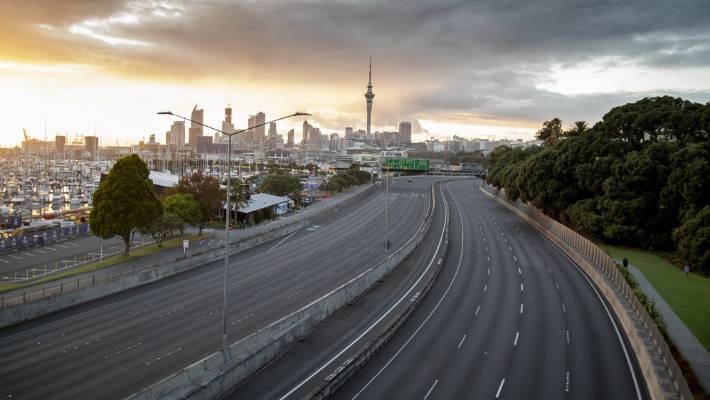Australia/Israel Review
AIR New Zealand: Misinformation campaigns
May 6, 2020 | Miriam Bell

Closed borders and deserted streets, crazed behaviour at supermarkets, the global economy in free fall… This is life in the time of COVID-19. It seems longer, but in a mere few weeks, the world has become a very different place.
After confirming its first case of COVID-19 on Feb. 28, New Zealand closed its borders to non-residents on March 19 and went into lockdown on March 25.
New Zealand, like Australia, currently seems to be winning its battle on the public health front at least, but it’s not possible to avoid seeing reports of the devastation wrought by COVID-19 in countries like Italy, Spain, the UK and the USA.
Yet while we might be in the midst of a global crisis, that’s not enough to stop some people peddling their brand of anti-Israel propaganda.
Indeed, the lockdown means that a vast number of people are living their lives online – and at least some old hands have realised that equates to a captive audience. In particular, veteran Kiwi pro-Palestinian activists Roger Fowler (the force behind the group “Kia Ora Gaza”) and John Minto have been doing their best to mobilise their troops during lockdown.
Largely using the Kia Ora Gaza website and The Daily Blog, they have been ensuring a constant stream of misinformation appears about Israel’s actions towards Gaza during the COVID-19 pandemic.
Given Israeli and Palestinian authorities have, in fact, been co-ordinating efforts to battle COVID-19 pretty well, the claims of Minto and his cohorts are easily disproven. But that has not stopped them upping the level of activity on their websites and social media channels in order to push their agenda.
Over the course of the lockdown, they organised a letter, signed by New Zealand “notables”, to the Prime Minister and New Zealand’s “first online protest”, and held an online film screening (“Gaza fights for freedom”). Minto even featured in the Sunday Star-Times magazine’s “At home with…” section. He was sporting a Justice for Palestine-type t-shirt and predictably expressed his strong views on the situation between Israel and the Palestinians.
However, the current reality of life under COVID-19 means that little notice has been taken of their efforts. Despite their plea to Prime Minister Jacinda Ardern, her attention has clearly been focused elsewhere, as has that of the media.
The problem is that in other, more settled times, this same small group of “activists” can garner a disproportionate amount of media attention in New Zealand.
A prime example of this is a situation which occurred in Wellington in February, just before the COVID-19 crisis took hold.
The Wellington Jewish Council had requested that Wellington Council adopt the widely-used International Holocaust Remembrance Alliance’s (IHRA) definition of antisemitism. The city’s new mayor, Andy Foster, was keen to do so.
Then just a day before the Wellington Council meeting where the proposal was to be debated, two members of Temple Sinai – Wellington’s Progressive synagogue – published an opinion piece in the city’s newspaper voicing their strong opposition.
Fred Albert and Marilyn Garson claimed that the IHRA definition includes a set of examples which conflate antisemitism with anti-Zionism and that the definition is a political instrument which fails as an anti-racism tool.
Albert and Garson, who have a history of publishing such views and falsely implying they represent the wider Jewish community, also complained there had been no opportunity for public input on the motion.
Subsequently, the Wellington Jewish Council requested that the motion be withdrawn because of the controversy it was causing, but also expressed hopes that it can be returned to the agenda at some point.
But the Albert/Garson column caused significant consternation among the Jewish community.
Temple Sinai’s Board of Management Chair Matthew Smith explicitly repudiated the column.
Smith said the fact that Albert and Garson self-described themselves as “members and service leaders” at the Wellington Progressive Jewish Congregation without offering any further disclaimer implied their views could be ascribed to Temple Sinai and its members.
“This effective misrepresentation is damaging to the Wellington Progressive Jewish Congregation and is disregarding of its members… Their views are in no way representative of those of the Board or the congregation, they are rather the views of a vocal fringe.”
The words of Smith and New Zealand Jewish Council spokesperson Juliet Moses, who reinforced Smith’s statement, were reported by media. The problem is they did not receive nearly the degree of coverage that the words of Albert and Garson had.
All too often, that is the problem in New Zealand. The views of a very small, vocal minority of anti-Israel protestors are presented as authoritative. Further, the tiny number of Jewish people among these groups tend to be presented as representative of the wider Jewish community.
And this is not only wrong, but it is also contributing to a profound lack of knowledge about Israel and the Palestinians, as well as a growing misunderstanding of what constitutes antisemitism.
Tags: Anti-Zionism, Israel, New Zealand, coronavirus






